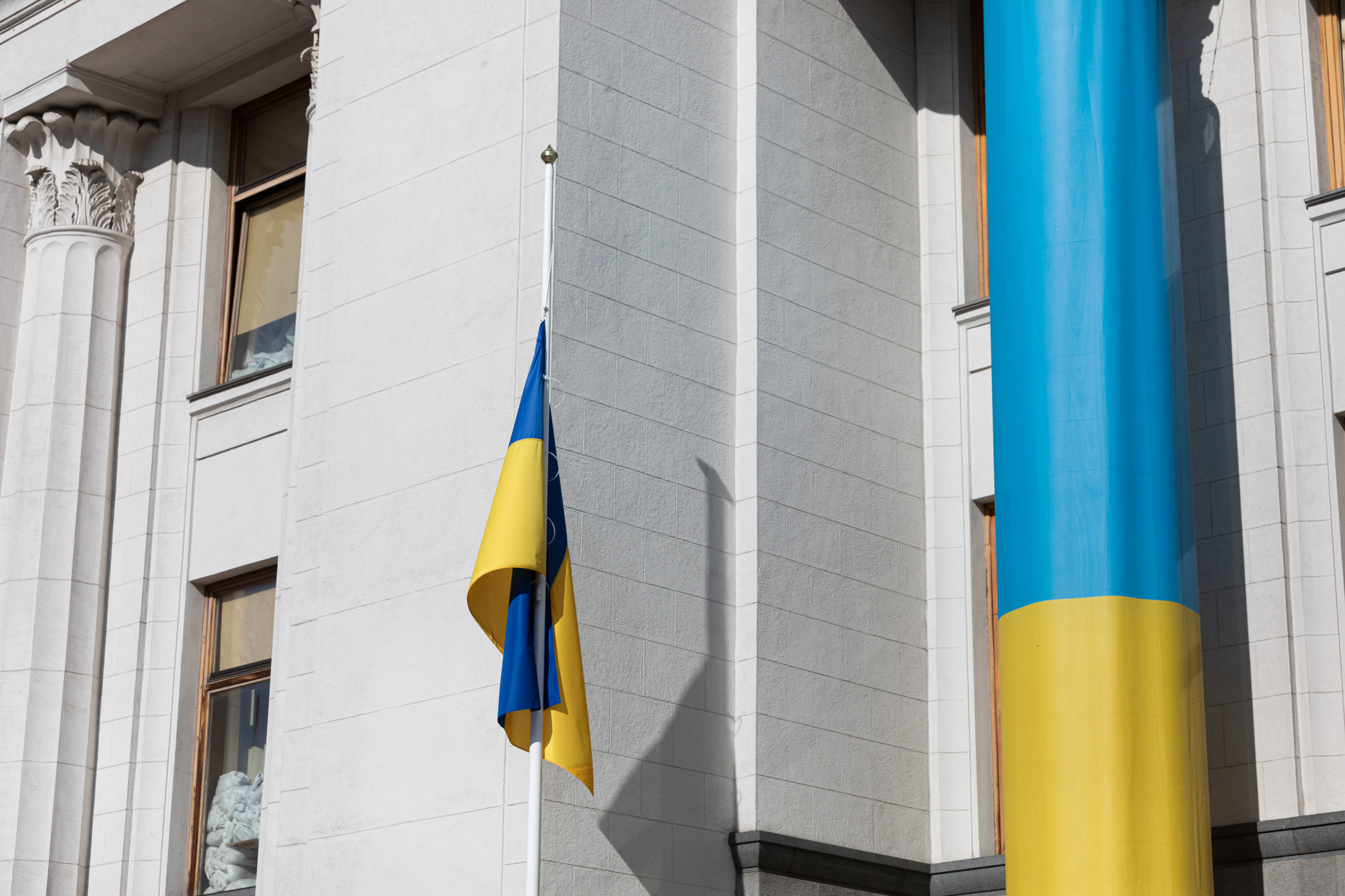This research studies the reasons behind certain countries voting in favor of Russia’s invasion of Ukraine at the UN General Assembly’s first emergency session. The study found that factors such as defense cooperation agreements with Russia, a history of leftist governments, receipt of Russian aid, political similarities with Russia, and lack of war with the Soviet Union all significantly impacted the probability of voting in favor of Russia.
Background and contribution
On February 24, 2022, Russian forces launched a full-scale military invasion of Ukraine, escalating the ongoing Russo-Ukrainian conflict (Farzanegan & Fischer, 2022). The United Nations General Assembly responded by passing a resolution (A/RES/ES-11/1) on March 2, 2022, calling for an immediate and unconditional withdrawal of all Russian military forces from Ukrainian territory. The resolution was supported by 141 of the 193 UN Member States, reaffirming Ukraine’s independence, sovereignty, and territorial integrity. Five countries, including Russia, voted against the resolution, while 35 abstained and 12 did not vote.
Despite international unity with 73% of countries voting in favor of the UN resolution on Russia’s invasion of Ukraine, some countries still abstained, didn’t vote, or even voted against it. This study aims to examine the potential factors behind country voting behavior in favor of Russia during the 11th emergency session of the UN General Assembly.
Previous research on country voting behavior in the UN (Alexander and Rooney 2019; Che, He, and Zhang 2021; Dreher, Nunnenkamp, and Thiele 2008; Mosler and Potrafke 2020; Woo and Chung 2018; Yan and Zhou 2021) has primarily focused on countries’ political support for China and the US. These studies have demonstrated that bilateral trade and foreign aid from China and the US play significant roles in shaping a country’s voting behavior at the UN.
The reasoning behind some nations’ voting behavior in support of Russia during the adoption of the UN resolution (A/RES/ES-11/1) has been covered by media outlets and analysts. Zimbabwe abstained from the vote due to existing sanctions on its politicians and strong bilateral and ideological ties with Russia, according to a BBC report on Africa. Mali abstained from the vote because of Russia’s military support. Tawat (2022) suggests that countries with close military and ideological ties with Russia either abstained or voted against the resolution. A CNN report (Busari 2022) posits that many of the countries that abstained from the vote are authoritarian regimes who admire Putin’s show of power in invading Ukraine. The same report highlights that factors such as importing military products from Russia and access to Russian markets also played a role in determining these countries’ support for Russia. Loffhagen (2022) explains that sharing a border and strong trade relations with Russia, as well as having an authoritarian leader, can account for Belarus’s vote against the resolution. India’s reliance on Russia for military equipment is cited as the reason for its abstention, according to Loffhagen (2022).
Our forthcoming paper, Farzanegan and Gholipour (2023) in International Interactions, addresses a gap in the literature on understanding the voting behavior of countries supporting Russia during the 2022 Russia-Ukraine war. At the time of writing our working paper (Farzanegan and Gholipour, 2022), despite the valuable insights provided by conceptual articles and media reports, there was a lack of data-driven cross-country analysis in this field. We address this gap by using multivariate regression analysis, building on the existing body of work on country voting behavior in the UN, including studies that examine the influence of bilateral trade and foreign aid from China and the US.
Sample, dependent and explanatory variables
The study used data from 133 countries. Our sample covers countries for which data on all variables are obtainable. The sample contains a wide range of countries including major emerging economies (e.g., Brazil, China, and India), the main advanced economies (e.g., the US, Japan and Germany) and several low-income developing nations (e.g., Nepal, Sudan, Uzbekistan), which account for most of the world’s total trade and outputs. In terms of geographical distribution, our sample also includes countries from different continents. Table 1 in the appendix shows the sample of countries for our analyses and the value of outcome variable (Vote in favor of Russia). The dependent variable is a binary value, with “1” indicating a vote against the resolution or abstention/no vote and “0” representing a vote in favor of the resolution against the Russian invasion. The data was collected on March 2, 2022 from the UN Digital Library. The study incorporates the key explanatory variables highlighted in previous research and divides them into three broad categories: economic, military & political, and geography & history. The study aims to examine the role of these variables in explaining a country’s voting behavior in the specific resolution (No. A/RES/ES-11/1).
Economic explanatory variables include Trade ties with Russia, Bilateral Investment Treaties (BITs), Foreign Direct Investment (FDI), and Aid from Russia. Military & political explanatory variables include Military/defense dependence, Regime dissimilarity, Government’s leftist ideologies in the past, Diplomatic relationship, and International organizations membership. Geographical and historical explanatory variables cover Experience of sanctions in the past, Former member of the Soviet Union, War with former Soviet Union, and Land border with Russia.
A Probit regression is applied for estimation because the dependent variable is binary (0 or 1). Table 2 in the appendix shows summary statistics of included variables.
Key results
Four models are used, each adding a different group of variables: economic-related (Model 1), political-military (Model 2), geography and history (Model 3), and all variables combined (Model 4).
Key results from Model 1 (economic-related variables):
- A higher import dependency on Russia increases the probability of supporting Russia by 1.8 percentage points.
- Receiving significant financial aid from Russia increases the likelihood of supporting Russia by 47.2 percentage points.
Key results from Model 2 (political-military drivers):
- Having a defense cooperation agreement (DCA) with Russia increases the probability of supporting Russia by 18 percentage points.
- A longer history of leftist governments increases the probability of supporting Russia by 0.4 percentage points.
- Higher political dissimilarity with Russia decreases the probability of supporting Russia by 1.6 percentage points.
Key results from Model 3 (geography and historical experience):
- Experience of US sanctions increases the probability of supporting Russia by 52 percentage points.
- Being a former Soviet Union member increases the probability of supporting Russia by 31.4 percentage points.
- History of war with the former Soviet Union decreases the probability of supporting Russia by 63 percentage points.
Key results from Model 4 (all variables combined):
- Aid dependency, DCA with Russia, and longer history of leftist governments increase the probability of supporting Russia.
- Higher net inflow of FDI to Russia, higher political dissimilarities with Russia, and history of war with the former Soviet Union decrease the probability of supporting Russia.
Summary
Our research analyzes the factors that influenced the voting behavior of countries during the UN General Assembly’s vote on Russia’s invasion of Ukraine. The key results show that the likelihood of voting in favor of Russia was higher for countries with defense cooperation agreements, leftist governments, political similarities with Russia, major recipients of Russian aid, and no history of war with the Soviet Union.
References
Alexander, Dan, and Bryan Rooney. 2019. “Vote-Buying by the United States in the United Nations.” International Studies Quarterly 63 (1): 168–76. https://doi.org/10.1093/isq/sqy059.
Busari, Stephanie. 2022. “Analysis: Why Some African Countries Are Thinking Twice about Calling out Putin.” CNN. March 21, 2022. https://www.cnn.com/2022/03/21/africa/africa-leaders-ukraine-response-cmd-intl/index.html.
Che, Yi, Xiaoyu He, and Yan Zhang. 2021. “Natural Resource Exports and African Countries’ Voting Behaviour in the United Nations: Evidence from the Economic Rise of China.” Canadian Journal of Economics/Revue Canadienne d’économique 54 (2): 712–59. https://doi.org/10.1111/caje.12514.
Dreher, Axel, Peter Nunnenkamp, and Rainer Thiele. 2008. “Does US Aid Buy UN General Assembly Votes? A Disaggregated Analysis.” Public Choice 136 (1): 139–64. https://doi.org/10.1007/s11127-008-9286-x.
Farzanegan, Mohammad Reza, and Sven Fischer. 2022. “Is It Right to Fight? Evidence from Russia and Ukraine.” Peace Economics, Peace Science and Public Policy, October. https://doi.org/10.1515/peps-2022-0011.
Farzanegan, Mohammad Reza, & Gholipour, Hassan F. (2022). Ukraine invasion and votes in favour of Russia in the UN General Assembly. MAGKS Joint Discussion Paper Series in Economics, No. 17-2022. Available at: https://www.econstor.eu/bitstream/10419/262318/1/17-2022.pdf
Farzanegan, Mohammad Reza, & Gholipour, Hassan F. (2023). Russia’s Invasion of Ukraine and Votes in Favor of Russia in the UN General Assembly. International Interactions, (forthcoming).
Loffhagen, Emma. 2022. “Which Five Countries Voted against the UN’s Resolution to Condemn Russia?” Evening Standard. April 21, 2022. https://www.standard.co.uk/news/world/which-countries-voted-against-un-resolution-condemn-russia-meaning-abstained-b985797.html.
Mosler, Martin, and Niklas Potrafke. 2020. “International Political Alignment during the Trump Presidency: Voting at the UN General Assembly.” International Interactions 46 (3): 481–97. https://doi.org/10.1080/03050629.2020.1719405.
Tawat, Mahama. 2022. “Russia-Ukraine War: Decoding How African Countries Voted at the UN.” The Conversation. 2022. http://theconversation.com/russia-ukraine-war-decoding-how-african-countries-voted-at-the-un-178663.
Woo, Byungwon, and Eunbin Chung. 2018. “Aid for Vote? United Nations General Assembly Voting and American Aid Allocation.” Political Studies 66 (4): 1002–26. https://doi.org/10.1177/0032321717739144.
Yan, Jiaqiang, and Yonghong Zhou. 2021. “Economic Return to Political Support: Evidence from Voting on the Representation of China in the United Nations.” Journal of Asian Economics 75 (August): 101325. https://doi.org/10.1016/j.asieco.2021.101325.
Appendix
Table 1. Sample countries and their associated value for vote in favor of Russia (1 if a country either voted against the resolution, or abstained or did not vote and 0 if a country voted in favor of the resolution against the Russian invasion).
| country | Vote in favor of Russia | country | Vote in favor of Russia | country | Vote in favor of Russia | country | Vote in favor of Russia |
| Afghanistan | 0 | Finland | 0 | Morocco | 1 | Tunisia | 0 |
| Albania | 0 | France | 0 | Mozambique | 1 | Turkey | 0 |
| Algeria | 1 | Gabon | 0 | Myanmar | 0 | Turkmenistan | 1 |
| Angola | 1 | Georgia | 0 | Namibia | 1 | Uganda | 1 |
| Argentina | 0 | Germany | 0 | Nepal | 0 | Ukraine | 0 |
| Armenia | 1 | Ghana | 0 | Netherlands | 0 | United Arab Emirates | 0 |
| Australia | 0 | Greece | 0 | New Zealand | 0 | United Kingdom | 0 |
| Austria | 0 | Guatemala | 0 | Nicaragua | 1 | United States | 0 |
| Azerbaijan | 1 | Guinea | 1 | Niger | 0 | Uruguay | 0 |
| Bahrain | 0 | Guyana | 0 | Nigeria | 0 | Uzbekistan | 1 |
| Bangladesh | 1 | Honduras | 0 | Norway | 0 | Vietnam | 1 |
| Belarus | 1 | Hungary | 0 | Oman | 0 | Zambia | 0 |
| Belgium | 0 | India | 1 | Pakistan | 1 | Zimbabwe | 1 |
| Benin | 0 | Indonesia | 0 | Panama | 0 | ||
| Bolivia | 1 | Ireland | 0 | Papua New Guinea | 0 | ||
| Botswana | 0 | Israel | 0 | Paraguay | 0 | ||
| Brazil | 0 | Italy | 0 | Philippines | 0 | ||
| Bulgaria | 0 | Jamaica | 0 | Poland | 0 | ||
| Burkina Faso | 1 | Japan | 0 | Portugal | 0 | ||
| Burundi | 1 | Jordan | 0 | Qatar | 0 | ||
| Cambodia | 0 | Kazakhstan | 1 | Romania | 0 | ||
| Canada | 0 | Kenya | 0 | Rwanda | 0 | ||
| China | 1 | Korea, Rep. | 0 | Saudi Arabia | 0 | ||
| Colombia | 0 | Kuwait | 0 | Senegal | 1 | ||
| Congo, Dem. Rep. | 0 | Kyrgyz Republic | 1 | Singapore | 0 | ||
| Congo, Rep. | 1 | Lao PDR | 1 | Slovak Republic | 0 | ||
| Costa Rica | 0 | Latvia | 0 | Slovenia | 0 | ||
| Croatia | 0 | Lebanon | 0 | Solomon Islands | 0 | ||
| Cuba | 1 | Libya | 0 | South Africa | 1 | ||
| Cyprus | 0 | Lithuania | 0 | Spain | 0 | ||
| Czech Republic | 0 | Luxembourg | 0 | Sri Lanka | 1 | ||
| Denmark | 0 | Madagascar | 1 | Sudan | 1 | ||
| Dominican Republic | 0 | Malawi | 0 | Suriname | 0 | ||
| Ecuador | 0 | Malaysia | 0 | Sweden | 0 | ||
| Egypt, Arab Rep. | 0 | Mali | 1 | Switzerland | 0 | ||
| El Salvador | 1 | Mauritania | 0 | Syrian Arab Republic | 1 | ||
| Eritrea | 1 | Mauritius | 0 | Tajikistan | 1 | ||
| Estonia | 0 | Mexico | 0 | Tanzania | 1 | ||
| Ethiopia | 1 | Moldova | 0 | Thailand | 0 | ||
| Fiji | 0 | Mongolia | 1 | Trinidad and Tobago | 0 |
Table 2. Descriptive statistics.
| Variable | Obs. | Mean | Std. dev. | Min | Max |
| Vote in Favor of Russia | 133 | 0.30 | 0.46 | 0 | 1 |
| Export Partner Share (%) | 133 | 2.63 | 6.79 | 0 | 41.34 |
| Import Partner Share (%) | 133 | 4.01 | 7.64 | 0 | 54.78 |
| Bilateral Investment Treaties (BIT) with Russia | 133 | 0.51 | 0.50 | 0 | 1 |
| Net inflow of FDI to Russia (Average 2015-21) | 133 | 114.40 | 658.61 | -3125.16 | 4349.52 |
| Recipient of Russian aids (2011-2015) | 133 | 0.05 | 0.22 | 0 | 1 |
| Defense Cooperation Agreement (DCA) with Russia | 133 | 0.58 | 0.50 | 0 | 1 |
| Polity2 gap from Russia | 133 | 0.32 | 6.27 | -14 | 6 |
| Percentage of years ruled by leftists (1945-2020) | 133 | 45.96 | 33.44 | 0 | 100 |
| Top 20 diplomatic partners of Russia | 133 | 0.12 | 0.33 | 0 | 1 |
| Shanghai Affiliates | 133 | 0.14 | 0.35 | 0 | 1 |
| EU Sanctions | 133 | 0.12 | 0.33 | 0 | 1 |
| UN Sanctions | 133 | 0.04 | 0.19 | 0 | 1 |
| US Sanctions | 133 | 0.10 | 0.30 | 0 | 1 |
| Former member of Soviet Union | 133 | 0.11 | 0.31 | 0 | 1 |
| Had war with former Soviet | 133 | 0.13 | 0.34 | 0 | 1 |
| Border with Russia | 133 | 0.10 | 0.30 | 0 | 1 |
Attention
The authors do not work for, consult to, own shares in or receive funding from any company or organization that would benefit from this article, and have no relevant affiliations




